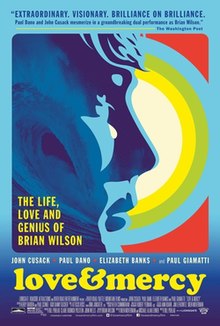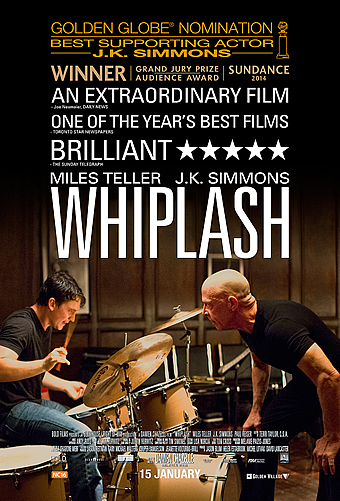 SPOTLIGHT
SPOTLIGHTDirector: Thomas McCarthy
Genre: Drama
Starring: Michael Keaton, Mark Ruffalo, Rachel McAdams, Brian d'Arcy James, John Slattery, Liev Schreiber, Stanley Tucci
Distributed by: Open Road Films
Release Date: November 6, 2015 (limited)/November 20, 2015 (wide)
My Rating: 9.5/10
"When you're a kid from a poor family and a priest pays attention to you, you feel special. How do you say 'no' to God, right?" This is just one of the many lines that encapsulates the victim's perspectives in a large-scale abuse scandal like the one dealt with in Spotlight. I sincerely hope this film wins, or at least is nominated, for several Oscars and other film awards because it absolutely deserves them. (I must admit bias, as I am an avid fan of investigative journalism dramas based on real events, like All The President's Men, Shattered Glass, and Kill The Messenger.) Writer/Director Tom McCarthy's (The Station Agent, The Visitor) drama, based on real events, centers on the Boston Globe's eponymous team of investigative journalists who, piece by piece, garnered evidence on a series of cases of priests from the Archdiocese of Boston who were molesting little children, particularly boys.
Set in 2001, the film begins with the arrival of Jewish editor-in-chief Marty Baron (Liev Schreiber), who takes over after leaving The New York Times, which incidentally bought the Globe a few years prior. After receiving a tip on a story about a priest named Geoghan who supposedly molested a young boy in his parish years ago, the Spotlight Team, led by Walter 'Robby' Robinson (Michael Keaton) begins a full investigation into how many other identical or similar cases there were within the Archdiocese of the city they grew up in. Their quickly research leads them to initially believe 13 priests committed these foul sexual crimes. However, multiple phone interviews with an ex-priest and psychotherapist named Richard Sipe (Richard Jenkins), who treated the priests who were discovered and subsequently sent to a psychiatric hospital, reveal there may have been up to 90 accused clergymen within the city of Boston alone, which roughly matches a national statistic that estimates six percent of priests are pedophiles.
The team manages to confirm 87 priests' names, and after multiple interviews with victims, lawyers, and even members of the Church, the Boston Globe pursues a lawsuit against the religious institution and its leader, Cardinal Bernard Law (Len Cariou).
The film is beautifully shot, and boasts a meticulously written script that alternates speed and pacing in a way that helps to maintain the audience's attention. The score is also very eerie and helps set the tone for a suspenseful storyline. The scenes that involved cross-cutting between different victims' interviews with the Spotlight Team (and, as one can imagine, with characters finishing each other's lines) were some of my favorite. The confessions of the victims are beyond shocking and utterly heartbreaking, especially knowing that they were ignored for so long, (20-plus years in some cases) even if part of the reason for that was that these boys were ashamed to speak out. One of the victims, Phil Saviano (Neal Huff), who states the aforementioned quote, also angrily asks the team of reporters why they ignored a box filled with evidence of abuse he had sent the Globe five years prior.
A lawyer named Mitchell Garabedian (Stanley Tucci) whom Spotlight reporter Michael Rezendes (Mark Ruffalo) constantly perturbs for information, claims that this case is particularly difficult because "the Church controls everything." One of the lawyers who defended the accused priests, Jim Sullivan (Jamey Sheridan), angrily explains when confronted that he was simply "doing his job." Finally, one of the attorneys who defended the victims, Eric MacLeish (Billy Crudup), also becomes defensive and refuses to remotely divulge any piece of information or take any responsibility, saying these types of cases are generally hopeless. So how much true progress and justice can really come when so many turn a blind eye and few seem willing to admit the truth or take the blame?
The performances from the all-star cast are outstanding and reflect their respective characters' perseverance and determination to uncover the truth and not let this story go unheard, despite another major event rocking the country at one point of the more-than-a-year-long investigation: 9/11. The most prominent performances for me were those of Mr. Keaton, Mr. Ruffalo, and Rachel McAdams, who plays the only female reporter on the Spotlight Team, Sacha Pfeiffer. Funny enough, Ms. McAdams' character is also the only one in the entire film who is shown directly interviewing an accused priest, who clearly seems mentally ill.
Aside from the shots of Boston's landmarks which unsurprisingly made me immensely miss my college city, the shots of the city, particularly during the wintertime, are perfect for such a dark tale.
Truth be told, I couldn't help but feel slightly ashamed as a Catholic after watching this film. I remember hearing of a few real-life cases of child molestation by clergymen in high school and in college, but I never truly realized the size and scope of this scandal until watching this film. To learn that, although justice was served in many cases, many others remain unfinished, is even more horrifying. The end credits reveal the cities both in the US and in the rest of the world where such scandals have erupted, and believe me when I saw your jaw will drop when you see just how many cities are on this list.
The fact that the judge assigned to the main case in which the Church was sued, Constance Sweeney, was a devout Irish Catholic woman, and that this woman ruled against the Church, is indisputably significant. Furthermore, nobody seemed interested in pursuing this story until a new editor who wasn't Catholic showed up and pushed for the investigation, because as one character states, "it takes an outsider," an opinion I happen to agree with. As for the accuracy and authenticity of the film's events, facts and statistics, the reporters from the Globe involved in the investigation were scrutinized by other journalists. The Spotlight Team members also published a book based on their findings entitled Betrayal: The Crisis of the Catholic Church.
Of course, not all priests are pedophiles or criminals of another nature. Just like police officers, some are merciless (and perhaps mentally ill), but many others are also good people. I make this comparison due to the increasing number of cops who have been shooting or violently arresting unarmed black men across the country and are defacing our society's image of policeman. Both priests and cops are figures who are supposed to represent all that is good, yet who is ensuring that they don't abuse of their rights or authority? Sadly, there seems to be a long way to go in both of these issues, although I am confident that big changes will come, even if it is not in the most drastic of ways.











